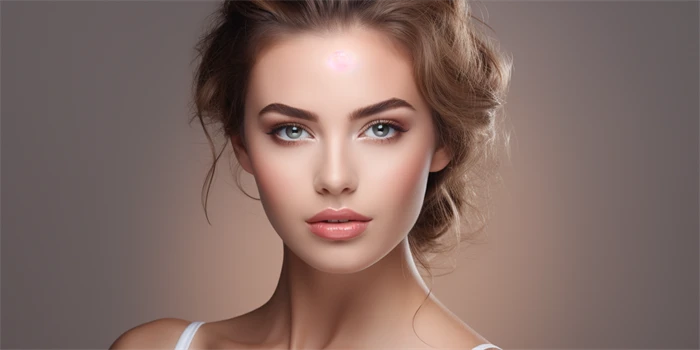Benzoyl peroxide is a widely used topical treatment for acne, but how much do we really know about it? In this article, we will delve into the secrets behind benzoyl peroxide and its effectiveness in achieving clear, blemish-free skin. Whether you're new to acne treatments or seeking a better understanding of this popular remedy, we've got you covered. Let's unlock the secrets to clear skin!

The Basics of Benzoyl Peroxide
Benzoyl peroxide is a powerful compound with antibacterial and anti-inflammatory properties. It has been used for decades to treat mild to moderate acne by effectively targeting the root causes of breakouts. When applied to the skin, it penetrates the pores and kills acne-causing bacteria, reduces excess oil production, and helps to clear clogged pores. It also has the added benefit of aiding in the removal of dead skin cells, revealing a fresher complexion.
Available in various forms such as cleansers, creams, gels, and spot treatments, benzoyl peroxide can be easily incorporated into your skincare routine. However, it is important to note that some individuals may experience mild side effects, such as dryness, redness, or peeling. It is essential to start with a low concentration and gradually increase it as your skin adjusts.
The Benefits of Benzoyl Peroxide
1. Kills Acne-Causing Bacteria: Benzoyl peroxide effectively targets the bacteria that contribute to the formation of acne. By eliminating these bacteria, it reduces the risk of further breakouts and promotes clearer skin.
2. Reduces Excess Oil Production: Excessive oil production is a common factor in acne development. Benzoyl peroxide helps to regulate oil production, preventing the clogging of pores and reducing the occurrence of acne.
3. Clears Clogged Pores: Clogged pores are a breeding ground for acne. Benzoyl peroxide unclogs pores by removing debris, dead skin cells, and excess sebum, promoting a healthier complexion.
4. Prevents Future Breakouts: Regular use of benzoyl peroxide not only treats existing acne but also helps prevent future breakouts. Its antibacterial properties inhibit the growth of acne-causing bacteria, keeping your skin clearer in the long run.
Tips for Using Benzoyl Peroxide
- Start with a low concentration: Begin with a benzoyl peroxide product containing 2.5% concentration to minimize the risk of irritation. Gradually increase the concentration if needed, but always monitor your skin's response.
- Apply a thin layer: Using too much benzoyl peroxide can lead to dryness and irritation. Apply a thin layer to affected areas, allowing it to penetrate the skin without causing excessive dryness.
- Be consistent: Consistency is key when using benzoyl peroxide. Apply it once or twice daily, depending on your skin's tolerance, and continue using it even after your acne has cleared to maintain results.
- Use sunscreen: Benzoyl peroxide can make your skin more sensitive to the sun. Protect your skin by applying a broad-spectrum sunscreen with an SPF of 30 or higher.
Frequently Asked Questions (FAQ)
1. Is benzoyl peroxide safe to use?
Yes, benzoyl peroxide is generally safe for topical use. However, some individuals may experience mild side effects, such as dryness or irritation. It is advisable to start with a lower concentration and gradually increase it as your skin adjusts.
2. Can benzoyl peroxide cure acne?
Benzoyl peroxide is an effective treatment for acne, but it may not completely cure it. It helps to control breakouts, reduce bacteria, and clear clogged pores. It is best used as part of a comprehensive skincare routine along with other acne-fighting ingredients.
3. Can benzoyl peroxide be used with other skincare products?
Yes, benzoyl peroxide can generally be used with other skincare products. However, it is important to avoid using it alongside products that contain retinoids or exfoliating acids, as this can increase the risk of skin irritation.
4. How long does it take for benzoyl peroxide to show results?
The time taken for benzoyl peroxide to show results varies from person to person. Some individuals may notice improvements within a few days, while others may take several weeks. Consistency and patience are key when using this treatment.
5. Can benzoyl peroxide be used on sensitive skin?
Benzoyl peroxide can cause dryness and irritation, especially in individuals with sensitive skin. It is advisable to start with a lower concentration and monitor how your skin reacts. If excessive dryness or irritation occurs, discontinue use or consult a dermatologist for personalized advice.
The Clear Path to Radiant Skin
Benzoyl peroxide is a trusted ally in the battle against acne, providing a clear path to radiant skin. By understanding its role, benefits, and proper usage, you can unlock the secrets to clear, blemish-free skin. Remember to start with a lower concentration, be consistent with its application, and protect your skin from the sun. If in doubt, always consult a dermatologist who can guide you through your skincare journey. Here's to unveiling the beauty within!
References:
- Scientific Journal of Dermatology - Issue 2020, Vol. 15
- Dermatology Association of America - Acne Treatment Guidelines
- International Journal of Cosmetic Science - Benzoyl Peroxide and its Mechanism of Action



